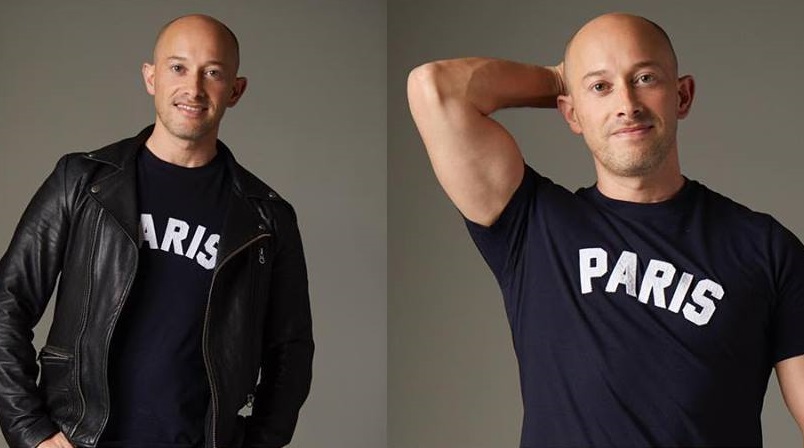South Africa’s esports scene is set for a major showdown as Hyprop and MTN introduce SHIFT COD, a Call of Duty tournament forming part…
Springleap case shows how unrelenting growth has poisoned tech [Opinion]

In late August, it emerged that the New York Attorney General had charged SA entrepreneur Eran Eyal with fraud. While CEO of design crowdsourcing site Springleap, the attorney general’s charges allege that Eyal defrauded investors of more than $600 000.
People close to Eyal were shocked at the allegations, but if they prove true then this incident is just the latest in a string which point to a wider problem in the tech space.
For the longest time, big tech companies and the wider startup ecosystems around them have focused, almost unrelentingly, on growth. With growth, the wider public was promised would come revenues and, eventually, profit.
But what happens when that growth is predicated on a product that doesn’t do anything like what it claims to, or customers who don’t really exist?
Theranos and “faking it till you make it”
Perhaps the most famous case of the former comes in the shape of Theranos. Founded by Elizabeth Holmes, the blood testing startup claimed that its portable kits could diagnose an array of diseases at a fraction of the cost of conventional blood tests.
Those who would’ve once been happy making a tidy buck (say from a T-shirt business like Springleap) increasingly felt the need to be part of a maverick club looking to change the world
The company later claimed that its products were being used by the US Department of Defence and that it was on track to bring in revenues of more than $100-million in 2014. A 2015 investigation by the Wall Street Journal revealed those claims to be false.
Once valued at more than $9-billion, Theranos went into a death spiral and looks set to finally shut down later this year, according to an article by The Verge. Along the way, investors lost more than $1-billion and US authorities accused both the company and Holmes of “massive fraud”.
Looking back, there were signs that things weren’t right, like The New Yorker profile where Holmes described the company’s process as follows: “A chemistry is performed so that a chemical reaction occurs and generates a signal from the chemical interaction with the sample, which is translated into a result, which is then reviewed by certified laboratory personnel.”
Unfortunately, credible investors and fawning headlines meant that those signs weren’t heeded. Sound familiar?
An ecosystem focused on the wrong stuff
Unfortunately, there are dozens of Theranoses (and potentially SpringLeaps) littering the tech ecosystem and it’s all too easy to see how they happen.
In the first two decades of this century, tech entrepreneurs became celebrities, adorning the covers of magazines and sharing stages with politicians, diplomats, and rock stars. Valuations went through the roof.
It looked like an exhilarating ride and everyone wanted to be on it.
People who would’ve once been happy making a tidy buck (say from a cool T-shirt business) increasingly felt the need to be part of a maverick club looking to change the world (If you weren’t dancing naked at Burning Man with the Silicon Valley elite, were you even really an entrepreneur?).
Those who already had money saw the returns investors in the tech space were getting and wanted in on the action. Unfortunately, many of these investors didn’t come from the tech space and couldn’t tell a fake from the real thing.
Of course, worshipping at the temple of growth doesn’t just affect startups.
Helmed by occasional richest-man-ever Jeff Bezos, Amazon recently became the second ever company to achieve a trillion dollar valuation, but workers in its warehouses skip bathroom breaks to keep their jobs.
Elon Musk, meanwhile, increasingly appears to have cracked under the pressure of running Tesla, SpaceX, and being a nerd idol.
Calling a rescue driver a paedophile, refusing to talk to journalists on earnings calls, and announcing your intention to take your company private via Twitter aren’t the actions of someone intent on saving the world, they’re what happens when you lose touch with it.
Changing focus
Clearly something needs to change, before the whole edifice comes crashing down. But where to start.
Well, the tech media has a role to play here. Big investment numbers and high-profile acquisition are sexy, but journalists need to look beyond them.
How secure is that business receiving its fifth round of funding? How secure are the jobs of the people who work there?
Speaking of jobs, maybe it’s time we celebrated the startups that create jobs (actual jobs, not independent contracting opportunities) rather than rendering them redundant.
And maybe, just maybe, it’s time investors (and the big tech companies themselves are ideally poised to do this) look at a company’s potential for positive impact rather than the potential for explosive returns.
The world is changing; tech needs to change with it or risk being left behind.
Read more: Springleap case shows how unrelenting growth has poisoned tech [Opinion]
Read more: Springleap’s Eran Eyal misrepresented me as Shopin adviser – Vinny Lingham
Read more: BREAKING: I am innocent of malicious allegations says Springleap’s Eran Eyal
Read more: BREAKING: Springleap’s Eran Eyal released from US prison, posts $250k bail
Read more: Are these the messages Springleap’s Eran Eyal sent to investors for funding?
Read more: Springleap’s Eran Eyal removed as CEO of Shopin and replaced with interim head [Updated]
Read more: Springleap’s Eran Eyal did not seem like scammer to me – DocuSign founder
Read more: Charges against Springleap founder not first time Eran Eyal’s in trouble with law [Updated]
Read more: Investor gatvol over losing R8.5m to Springleap through ‘misrepresentation’
Read more: Springleap charges: Are claims as world’s 7th most innovative firm a fabrication? [Updated]
Read more: SA entrepreneur Eran Eyal charged with fraud in the US over startup Springleap
Read more: Springleap’s Trevor Wolfe talks agencies, startups, and pivots [Q&A]
Read more: Springleap’s new Creatives Insights platform helps brands expand to foreign markets
Read more: Springleap goes big: expands into Middle Eastern, pan-African markets
Read more: SA crowdsource design startup Springleap secures R4m+ Angel round
Read more: Life after t-shirts: Ventureburn gets the exclusive behind Springleap’s pivot
Mich Atagana is Google SA’s head of public affairs and communication. She writes this in her personal capacity.
Featured image: Springleap founder Eran Eyal (via Facebook)

